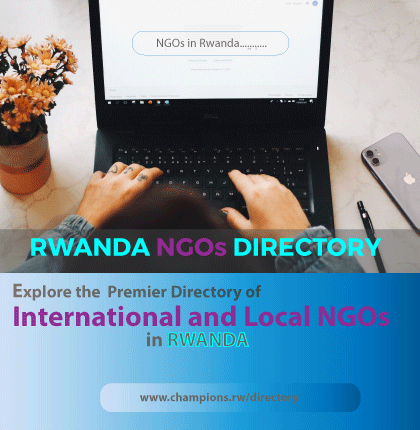Rwanda Builds Drying Facilities to Cut Post-Harvest Losses of Onions and Chili Peppers
Rwanda’s National Agricultural Export Development Board said it is constructing five drying facilities to reduce (…)

They say actions speak louder than words. For Paloma Lengema, general manager of BIC East Africa, the company’s success speaks volumes — sharp, bold, and enduring, much like the iconic BIC Cristal pen itself.
From her start as a marketing manager to leading East Africa operations, Lengema’s career has been marked by leadership, creativity, and a commitment to community. As BIC celebrates its 75th anniversary, Lengema reflects on the company’s regional growth, sustainability efforts, and future plans.
Lengema joined BIC straight out of university as a brand manager for the Middle East and Africa region. Her career took her across North America, Europe, Africa, and the Middle East, including marketing and commercial roles, before returning to East Africa to lead operations.
“Each step taught me something new,” she said. “From launching subsidiaries to innovating in mature markets, and from developing marketing campaigns to working with diverse teams across continents, every experience shaped my leadership style. I learned resilience and creativity in Africa, and the power of structure, scale, and data-driven decision-making in North America.”
Lengema describes her leadership approach as collaborative, culturally aware, and people-focused. “I strongly believe in empowering teams, encouraging diverse voices, and balancing performance with empathy,” she said.
BIC’s Regional Growth
BIC has been present in East Africa for decades, initially through distributors. Establishing a direct subsidiary allowed the company to have greater control over quality, availability, and innovation.
“Being closer to our consumers directly impacts the decisions we make,” Lengema said. “It also allows us to invest directly in communities through job creation, initiatives, and long-term partnerships.”
She added that subsidiary development enables international companies to engage with local ecosystems and create mutually beneficial relationships.
BIC’s manufacturing footprint in Kenya has created hundreds of direct and indirect jobs, built local skills, and strengthened the country’s position as a regional manufacturing hub.
“Local production improves affordability and access for consumers while supporting industrialization and export-led growth,” Lengema said. “It also builds pride — when a child uses a BIC pen made here, they feel part of a bigger global story.”
BIC’s CSR initiatives focus on education and environmental stewardship. Globally, the company aims to improve learning conditions for 250 million students by 2025. In East Africa, programs such as Buy Me and BIC Will Donate a Pen and Express Myself with My BIC Pen have reached more than 60,000 students and donated millions of writing tools to support academic performance and self-expression.
Every year, BIC employees volunteer during Global Education Week to refurbish school facilities, creating inspirational learning environments.
Earlier this year, to mark the 75th anniversary of the BIC Cristal pen, the company launched an environmental education initiative. Over 1,600 trees were planted across 22 schools in Kenya — 75 trees per school, one for every year the BIC Cristal has existed. The initiative is expected to absorb 41.25 tons of CO₂ annually and produce approximately 660,000 fruits once mature. Communities will help manage the trees and benefit from their produce, creating economic and environmental impact.
The BIC Cristal Legacy
“The BIC Cristal is timeless because it’s simple, affordable, and reliable,” Lengema said. “It has helped billions of people write their own stories and express themselves. Looking ahead, we aim to continue evolving through sustainable innovation, including eco-designed and recyclable products, while ensuring learners in East Africa have access to quality writing tools.”
Lengema emphasizes that leadership requires agility, vision, and empathy, especially in Africa’s fast-changing markets. “Change is an opportunity to innovate — through digital engagement, sustainable supply chains, or new community partnerships,” she said. “Strong leadership provides stability in uncertainty while keeping organizations flexible enough to seize opportunities as they emerge.”
For young professionals, Lengema encourages curiosity, resilience, strong relationships, and authenticity.
“Never stop learning. Resilience matters; not every step will be easy, but persistence pays off. Every mentor, colleague, and partner shapes your journey. And success is easier to sustain when you lead in alignment with your values,” she said.
For women entering business or FMCG, Lengema advises embracing their perspective, seeking mentorship, and leading with strength and compassion.
Rwanda’s National Agricultural Export Development Board said it is constructing five drying facilities to reduce (…)
President Paul Kagame on Thursday received European Union Commissioner for Equality, Preparedness and Crisis (…)
Rwanda’s central bank has raised its key policy rate to 7.25% from 6.75% in a bid to curb rising inflation and bring (…)
While Rwanda’s economy continues to grow, rural residents are being left out of its benefits, consumer rights (…)

